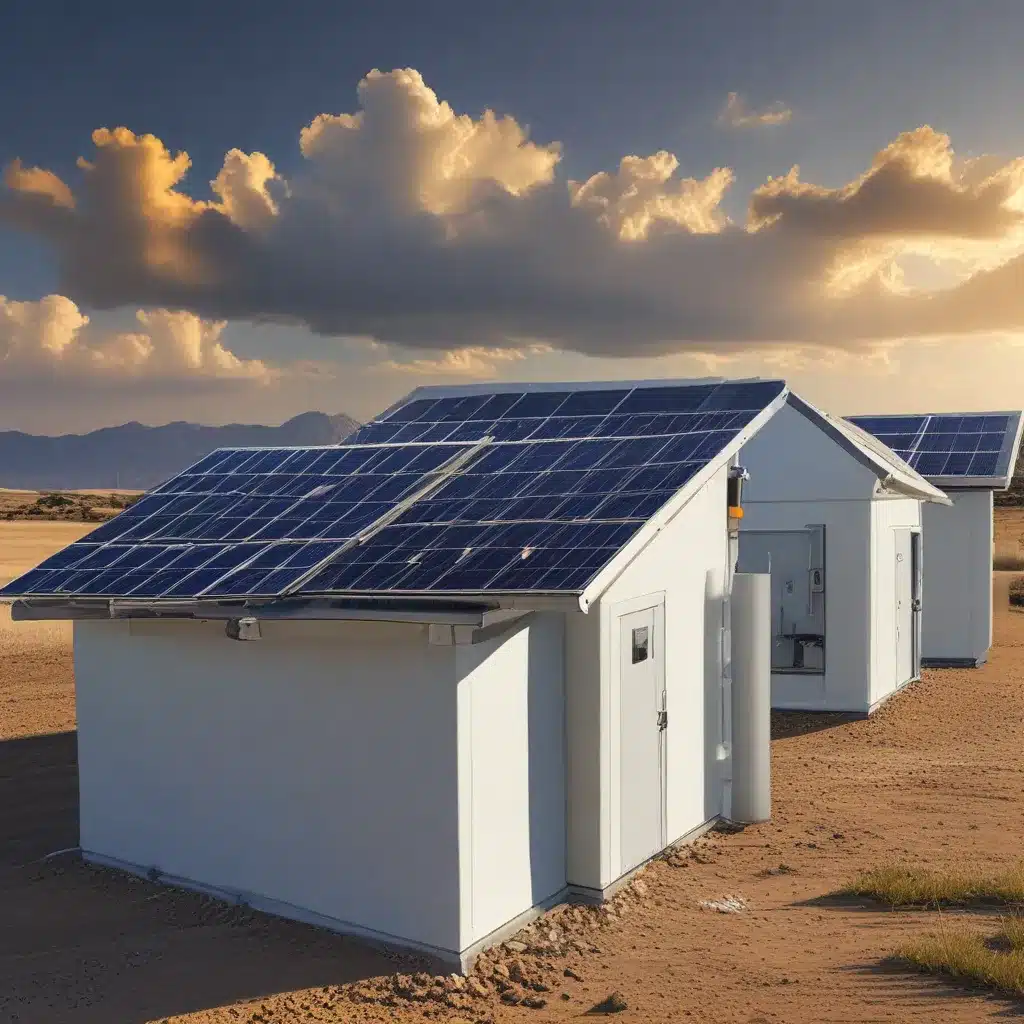
The Power Outage Predicament
Imagine you’re home on a stormy night, comfortably watching TV with the washing machine humming away, when suddenly, the lights go out. Your neighborhood has lost power, but you don’t even notice. Why? Because your solar-plus-storage system is quietly keeping your home running, seamlessly transitioning from the grid to your own backup power.
A common misconception about solar power is that it’s only useful when the sun is shining. But with the right energy storage solution, your solar panels can provide reliable, round-the-clock power – even when the grid goes down. As the U.S. Department of Energy explains, residential solar energy systems paired with battery storage, commonly known as “solar-plus-storage,” can keep your home powered up regardless of the weather or time of day.
The Benefits of Solar-Plus-Storage
So, why should you consider a solar-plus-storage system for your home? Let’s dive into the key advantages:
1. Backup Power
When the grid goes down, your solar-plus-storage system acts as a reliable backup, ensuring you have the power you need to keep your lights on, your devices charged, and your essential appliances running. As the Office of Energy Efficiency & Renewable Energy explains, these systems provide power without relying on the grid, so you’re not left in the dark during outages.
2. Energy Independence
With a solar-plus-storage system, you’re no longer at the mercy of your utility company. You can generate, store, and use your own renewable energy, reducing your reliance on the grid and potentially lowering your electricity bills. This sense of energy independence can be empowering, especially in an era of rising energy costs and unpredictable power disruptions.
3. Environmental Benefits
Solar energy is a clean, renewable resource that doesn’t produce any greenhouse gas emissions. By combining solar panels with energy storage, you’re not only reducing your carbon footprint but also contributing to a more sustainable future. The Office of Energy Efficiency & Renewable Energy encourages homeowners to explore these eco-friendly energy solutions.
4. Potential Cost Savings
While the initial investment in a solar-plus-storage system may be higher than a traditional solar setup, the long-term cost savings can be substantial. Depending on your location and energy usage, you may be able to offset the upfront costs through reduced utility bills, federal tax credits, and state-level incentives. As the Department of Energy notes, the battery alone can cost anywhere from $12,000 to $22,000, but the total system cost can be offset by various financial incentives.
Choosing the Right Solar-Plus-Storage System
When it comes to selecting a solar-plus-storage system for your home, there are a few key factors to consider:
Battery Capacity
The size of your battery storage system will depend on your energy needs and the size of your solar array. Larger batteries can store more energy, providing longer-lasting backup power during outages. However, bigger isn’t always better – you’ll want to find a balance between your power requirements and your budget.
Compatibility with Solar Panels
Make sure the battery storage system you choose is compatible with your existing solar panels or the new panels you plan to install. Consult with a solar energy solutions provider to ensure a seamless integration.
Backup Power Duration
Consider how long you need your backup power to last during an outage. Some battery systems can provide power for a few hours, while others can sustain your home for days. Evaluate your essential power needs and choose a system accordingly.
Financial Incentives
Don’t forget to research available federal, state, and local incentives for solar-plus-storage systems. These can significantly offset the upfront costs and make the investment more attractive.
Debunking Common Myths
Now that you know the benefits of solar-plus-storage, let’s address some common misconceptions:
Myth: Solar Power Doesn’t Work at Night
This is simply not true. While solar panels do require sunlight to generate electricity, a solar-plus-storage system uses batteries to store the energy produced during the day for use at night or during power outages. As the Department of Energy explains, these systems can provide power regardless of the weather or time of day.
Myth: Solar-Plus-Storage is Expensive
While the initial investment in a solar-plus-storage system may be higher than a traditional solar setup, the long-term cost savings can be significant. As the Department of Energy notes, the total system cost can be offset by various financial incentives, making it a more accessible option for many homeowners.
Myth: Solar-Plus-Storage is Complicated to Install
Installing a solar-plus-storage system may require some additional steps compared to a standalone solar setup, but a reputable solar energy solutions provider can handle the entire process for you. They’ll ensure a seamless integration of the panels and batteries, guiding you through the entire installation process.
The Future of Solar-Plus-Storage
As technology continues to advance and the demand for renewable energy solutions grows, solar-plus-storage systems are poised to play an increasingly crucial role in our energy landscape. These integrated systems not only provide reliable backup power but also contribute to a more sustainable, resilient, and energy-independent future.
Imagine a world where power outages are a thing of the past, and your home is powered by clean, renewable energy – even when the grid goes down. With a solar-plus-storage system, that future is within reach. So, why not take the first step towards energy independence and explore the benefits of this game-changing technology?


